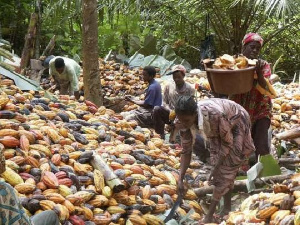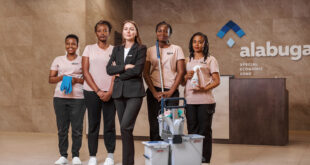In a world that’s growing increasingly concerned about corporate commitments to environmental and social responsibility, top cocoa producers Ivory Coast and Ghana are planning to make a move that goes against the tide.
The West African nations, which produce more than 60% of the world’s cocoa, are preparing to suspend sustainability programs run by private companies including traders, confectioners and certification agencies, according to people familiar with the matter. An announcement should be made at the World Cocoa Foundation Partnership meeting in Berlin next week, said the people who asked not to be named because the information is private.
The move may come as a surprise as the ethically-minded millennial consumer is increasingly interested in knowing where food comes from, whether it has been grown sustainably and without the use of child labour. It’s also in sharp contrast to the corporate world, where investors are hatching up pressure on companies from oil majors to miners to change practices and meet climate targets.
Ivory Coast and Ghana are taking unprecedented steps to exert more control over global cocoa prices, with a joint initiative to boost farmer income by adding a premium of $400 a ton over futures prices for beans delivered starting October 2020. While most firms in the cocoa and chocolate sectors have agreed with the principle of paying farmers a higher price, many are still grappling with adhering to the new strategy as the premium can’t be hedged.
Cocoa regulators in both countries are growing increasingly frustrated with the slow adoption of the new strategy, with Ivory Coast having sold only about 10% of the bigger of two annual crops with the premium, according to people familiar with the matter. A potential suspension to sustainability schemes has so far been used as leverage for the nations to try to get more companies to commit to boosting purchases with a premium, the people said.
Chocolate makers can’t claim that they’re sourcing cocoa sustainably while holding back their support for a plan that will considerably improve the livelihoods of small-scale producers, Yves Kone, the managing director of Ivory Coast’s industry regulator, Le Conseil du Cafe-Cacao, known as the CCC, told reporters in Abidjan Oct. 11.
“Sustainability is also paying farmers,” he said.
Manufacturers usually buy their cocoa six to nine months ahead, so it’s not unusual that some haven’t yet purchased beans for the 2020-21 season. Nestle SA, the world’s largest food company, said it had started sourcing cocoa for that period. Mars Inc. hasn’t yet bought any supplies, but says it’s committed to buying with the new premium. Hershey Co. said it doesn’t comment on its forward purchases but it will support the new system.
Ivory Coast and Ghana had already warned the industry they were reviewing the sustainability programs, with regulators in the nations saying the projects of chocolate brands only serve selected farmers while the new living-income premiums will benefit all growers. Ivory Coast also sees that too little of the price premiums currently in place through private sustainability programs reach farmers, with the rest going to intermediaries, one of the people familiar with the country’s plans said.
Chocolate makers and cocoa traders have invested millions of dollars in sustainability programs over the past decade. Still, cocoa farmers continued to live in poverty, with the World Bank pointing out in a July report that only a small share of the export price on international markets went to farmers.
Ivory Coast’s regulator now plans to lead its own sustainability program, while Ghana doesn’t plan to replace the private schemes with anything else as the country is already implementing projects to prevent forest degradation and adapt to climate change, people familiar with the matter said.
A spokesman for regulator Ghana Cocoa Board wouldn’t immediately comment when contacted by phone. A spokeswoman for the Ivorian counterpart didn’t answer calls or respond to text messages for comment.
Source: Myjoyonline.com
 Home Of Ghana News Ghana News, Entertainment And More
Home Of Ghana News Ghana News, Entertainment And More





